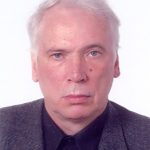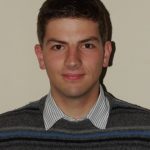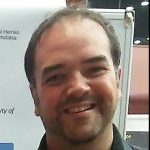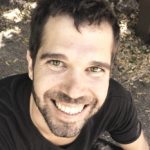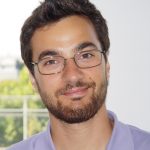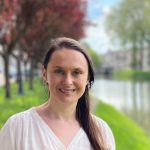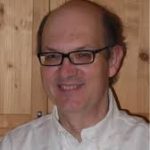
Prof. Bernard Doudin leads the Nanodevices team at CNRS / IPCMS (Institute of Physics and Chemistry of Materials of Strasbourg), made up of 5 permanent researchers, and typically 2 postdocs and 6 PhD students. He is also the scientific Director of the cleanroom facilities, and currently heads the Laboratory of Excellence Nanostructures in Interactions with their Environment. Half of the 10 students graduating from his group over the past 5 years, are now postdocs, and the other half are employed by industry.
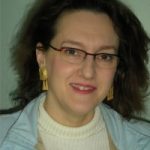
Dr. Laurence Noirez is a CNRS Research Director at the Laboratoire Léon Brillouin-Paris-Saclay University. She has a 25 years expertise in neutron scattering and diffraction, pioneering patented methods that enabled the discovery of the elasticity of liquids and access to full fluid characteristics. She has published 130 papers in journals including Nature, Phys. Rev. Lett., J. Chem. Phys. Lett., APL.
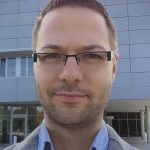
Dr. Thomas Hermans is group leader at ISIS (Institut de Science et d’Ingénierie Supramoléculaires, founded by Nobel Laureate J.-M. Lehn) since 2013. His group currently consists of 4 PhD students, 4 Postdocs, and master students. He has published in Science, Nature Nanoscience, Nature Communications, Nature Materals Advancd Materials, Angew. Chem, and has been named fellow at USIAS (University of Strasbourg Institute of Advanced Study) in 2014, HFSP (Human Frontier Science Program) fellow and Rubicon fellow (Netherlands Organization for Scientific) in 2010.
Prof. Andrejs Cebers holds the chair of theoretical physics and leads the Laboratory of Magnetic Soft Materials (University of Latvia), including 7 permanent researchers and 2-3 PhD students, with around 6 papers/year in journals like Advanced Functional Materials, Soft Matter, Physical Review E, and Journal of Fluid Mechanics. Research on flexible magnetic strings was recognized as major achievements in theoretical science in 2016 by the Academy of Sciences of Latvia.
Dr. Guntars Kitenbergs is a senior researcher at the Laboratory of Magnetic Soft Materials (University of Latvia), working on experimental physics problems connected to magnetism, soft materials and microfluidics. He is also the Head of the Department of Physics and currently supervises 1 PhD student.
Ikerbasque Prof. Lourdes Basabe-Desmonts and Dr. Fernando Benito-Lopez lead the Microfluidic Cluster UPV/EHU at the University of the Basque Country, Spain, made of 2 permanent researchers, 3 postdocs, 6 PhD students and several Master Students with around 10 papers/year in journals like Lab on a Chip, ACS Nano, Microfluidics & Nanofluidics, Advanced Functional Materials Mater., Sensors & Actuators B, with two patents pending in the last two years. Prof. Basabe-Desmonts is also member of Jakiunde, the Basque Academy of Sciences, Arts and Letters and Dr. Benito-Lopez is Ramón & Cajal Fellow, the most prestigious research based fellowship in Spain.

Prof. Dr. Dr. h.c Eberhard Bodenschatz directs the Department of Fluid Dynamics, Pattern Formation and Biocomplexity at the Max Planck Institute of Dynamics and Self-Organization in Goettingen, Germany. His group has 7 technicians, 12 project leaders, 10 PostDocs and 15 Graduate Students. Prof. Bodenschatz is also full professor at the University of Göttingen, where he heads the Institute for Nonlinear Dynamics. In addition, he is adjunct professor of Physics and Mechanical and Aerospace Engineering at Cornell University, USA and Chair Professor at Tsinghua University China. He is a member of the Akademie zu Goettingen, and has received many honors with one being the Corrsin Award of the Devision of Fluid Mechanics of the American Physical Society.
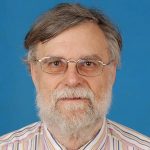
Prof. Michael Coey is Emeritus Professor, and founder and co-director of the Magnetism and Spin Electronics Group at TCD, which has trained 70 PhD and MSc students over the past 35 years. He is a Fellow of the Royal Society and a Foreign Associate of the US National Academy of Sciences. Author of four books on magnetism and over 700 papers (cited on average 40 times each) he currently publishes about 20 per year in journals including Nature Physics, Nature Nanotechnology, Science, Physical Review Letters, Applied Physics Letters and Physical Review B. He founded the company Magnetic Solutions in 1994 (now part of the TEL group), the TCD Science Gallery in 2007 and was a co-founder of CRANN, Ireland’s nanoscience research centre. He was Chief Coordinator of the Concerted European Action on Magnets, a consortium of 80 academic and industrial groups working on all aspects of novel permanent magnets.
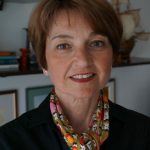
Prof. Ingrid Milošev is the head of the Department of Physical and Organic Chemistry at JSI (Jožef Stefan Institute). Her group consists of 2 postdocs and 4 PhD students publishing on average 10 papers per year in leading corrosion, electrochemical and materials science journals. She has been involved in several ERA projects and INTERREG project. She has published over 120 papers with h-index 33. She has supervised 8 PhDs and 3 MScs, she is currently supervising 6 PhDs and 2 MScs.
Dr. Nataša Kovačević is project manager at Kolektor Group Company, awarded PhD in 2014 at the Faculty of Chemistry and Chemical Engineering in the field of corrosion and passivation processes on the surfaces of metal materials. Her career in research started at the Jozef Stefan Institute. Since 2013 she has been working at Kolektor Group, researching chemistry of materials, corrosion and passivation processes on metal surfaces and rare-earth magnets, development of corrosion protection on various metal surfaces and rare-earth magnets, and development of other functional coatings. She is further responsible for the development of new environmentally friendly and economical, open-air plasma metallization processes. The results of her research have been published in eleven scientific papers in renowned journals, and have been publicly presented at various national and international expert conferences, meetings and seminars. Her work gained considerable publicity. Her innovations open new dimensions of sustainable and ecological processes in the field of automotive and industrial engineering.
Dr. Walter Minnella, manager of the Innovation Unit at Elvesys. He received his PhD on condensed matter physics from the University of Bordeaux within the framework of an European Training Network focused on microfluidic label free cell sorting. His areas of expertise are physics, microfluidics, and PCR on chip. Currently he manages research projects related to microfluidics and biotechnologies at Elvesys.
